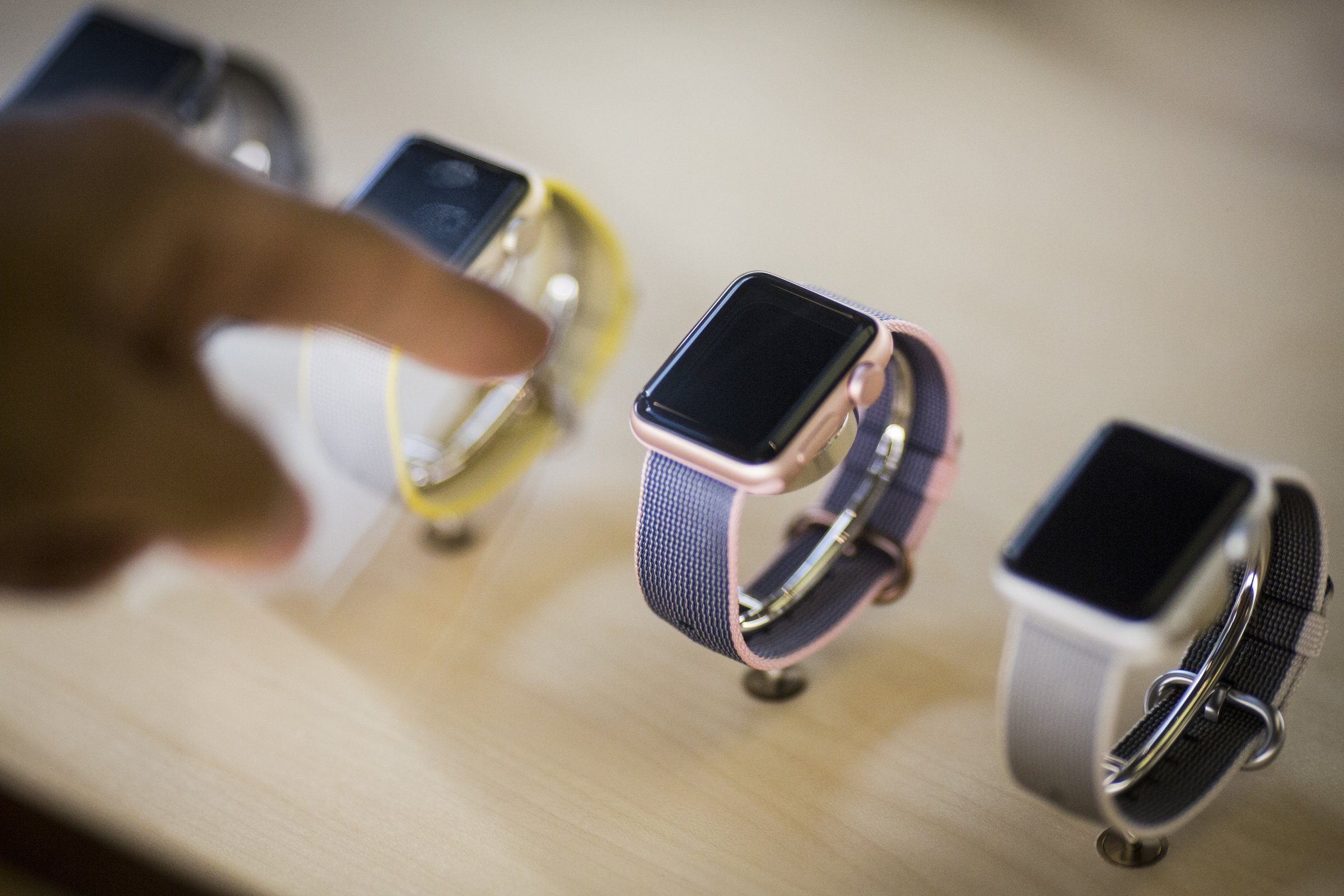
Updated
Some fitness trackers are a lot more accurate than others, finds a new study published in JAMA Cardiology.
Researchers at Cleveland Clinic wanted to test how well four popular wearable devices measured heart rate, which is involved in a formula that calculate how many calories a person is burning while they exercise. They hooked 50 healthy adults up to an electrocardiogram (EKG), the gold-standard test for measuring heart activity, and compared the results to heart rates obtained by Fitbit Charge HR, Apple Watch, Mio Alpha and Basis Peak. They also assessed a chest strap. The researchers measured everyone at rest, then walking and jogging on a treadmill.
The chest strap monitor was the most accurate, nearly matching the EKG with 99% accuracy—both technologies capture electrical activity coming from the heart. Of the wrist wearables, Apple Watch was about 90% accurate, but “the other ones dropped off into the low 80s for their accuracy,” says Dr. Gordon Blackburn, one of the study’s authors and director of cardiac rehabilitation at Cleveland Clinic.
Accuracy also went down as intensity increased. “What we really noticed was all of the devices did not do a bad job at rest for being accurate for their heart rate, but as the activity intensity went up, we saw more and more variability,” Blackburn says. “At the higher levels of activity, some of the wrist technology was not accurate at all.”
Measuring heart rate from the wrist is convenient, but it comes with some disadvantages. “All of the wrist technologies are looking at blood flow,” Blackburn says. “You need to have good contact between the photosensing cells; as a person is exercising more vigorously, there’s more bounce, so you may lose some of that contact.”
For a person without health problems using a wrist-worn device to track heart rate, “it probably isn’t putting them at any risk,” Blackburn says. “Our concern is for patient populations that have health problems that can be aggravated by getting to too high of an intensity.”
“Fitbit trackers are not intended to be medical devices. Unlike chest straps, wrist-based trackers fit comfortably into everyday life, providing continuous heart rate for up to several days without recharging (vs. a couple hours at a time) to give a much more informative picture of overall health and fitness trends,” Fitbit representatives said in a statement, adding that their internal tests showed an accuracy rate of 94% [or a margin of error that was about 6%.]
More Must-Reads From TIME
- The 100 Most Influential People of 2024
- Coco Gauff Is Playing for Herself Now
- Scenes From Pro-Palestinian Encampments Across U.S. Universities
- 6 Compliments That Land Every Time
- If You're Dating Right Now , You're Brave: Column
- The AI That Could Heal a Divided Internet
- Fallout Is a Brilliant Model for the Future of Video Game Adaptations
- Want Weekly Recs on What to Watch, Read, and More? Sign Up for Worth Your Time
Write to Mandy Oaklander at mandy.oaklander@time.com